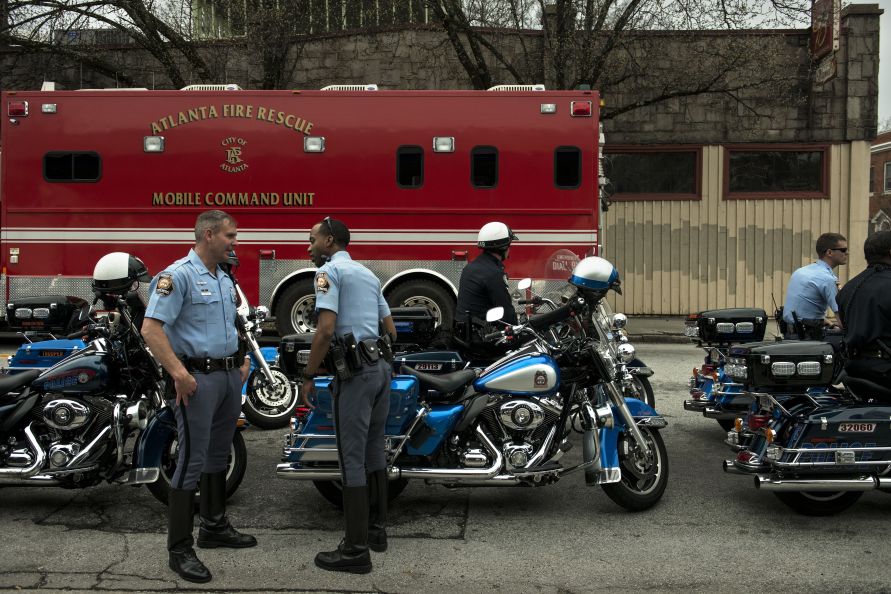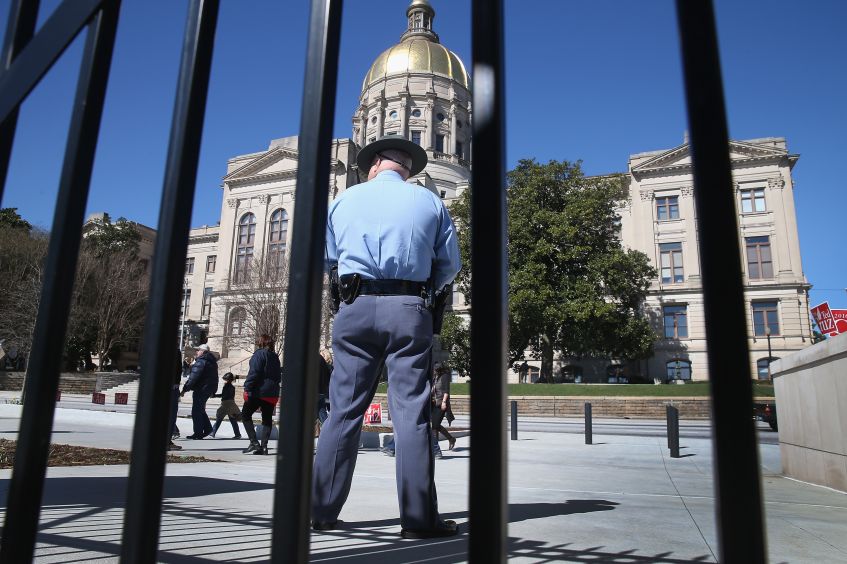Why Do People Call The Police 12? Unpacking The Mystery Behind This Common Phrase
So, you’ve probably heard someone say “call the police 12” or maybe you’ve even said it yourself. But have you ever stopped to think about why people say this? What’s the deal with the number 12? Is it some kind of code? A secret signal? Or just a random number thrown into the mix? Let’s dive into this intriguing phrase and figure out what’s really going on.
It’s not uncommon for phrases like this to pop up in everyday conversations. People throw around numbers and terms without really knowing where they come from. But understanding the context behind “why do people call the police 12” can give you a deeper insight into how language evolves and how certain expressions become part of our daily lexicon.
Whether you’re just curious about the origins of this phrase or you’re looking for a practical reason behind it, this article will break it down for you. Stick with me as we explore the history, logic, and even some quirky facts about why people say this. Let’s get started!
Read also:Life Partner P Allen Smiths Wife Debbie A Wikipedia Journey You Wont Forget
Here’s a quick overview of what we’ll cover:
- The History of the Phrase
- Common Usage in Daily Life
- Police Protocols and Numbering Systems
- Common Misconceptions
- Statistics on Emergency Calls
- Practical Tips for Calling the Police
- Legal Aspects of Emergency Calls
- Global Differences in Emergency Numbers
- Future Trends in Emergency Communication
- Conclusion: Why It Matters
The History of the Phrase
Language is fascinating because it evolves over time. The phrase “call the police 12” might seem random at first glance, but it actually has roots in historical practices. Back in the day, police departments used numbered codes to communicate efficiently. These codes were designed to save time and ensure clarity during emergencies.
In many regions, the number 12 was associated with specific types of incidents or requests. For example, in some police departments, code 12 could mean “request for assistance” or “check on suspicious activity.” Over time, these codes entered public consciousness, and people started using them casually in everyday speech.
Of course, the meaning of code 12 varies depending on the location and department. But the idea of using numbers to convey urgency or importance stuck around. That’s why you might hear people say things like “call the police 12” even when they don’t know the exact origin of the phrase.
How Numbered Codes Changed Communication
Numbered codes revolutionized how law enforcement agencies operated. Instead of lengthy descriptions over the radio, officers could simply use a code to convey important information quickly. This system was especially useful during high-pressure situations where every second counted.
However, as technology advanced, many departments moved away from strict code systems. Today, most emergency services rely on plain language to avoid confusion. Still, remnants of the old system linger in popular culture, which is why phrases like “call the police 12” remain relevant.
Read also:Patricia Noah The Rising Star Whos Capturing Hearts Worldwide
Common Usage in Daily Life
Now that we’ve covered the historical context, let’s talk about how this phrase shows up in real life. You might hear someone say “call the police 12” in a variety of situations. Sometimes it’s used seriously, other times it’s more of a joke or exaggeration.
For instance, imagine you’re at a party and someone spills a drink on the carpet. Someone nearby might quip, “Quick, call the police 12!” It’s not meant literally, of course, but it adds a bit of humor to the moment. On the flip side, if you witness a serious crime or suspicious behavior, you might genuinely think, “I need to call the police 12” as a way to remind yourself to take action.
This dual nature—both humorous and serious—is part of what makes the phrase so intriguing. People use it to express urgency, but they also use it to lighten the mood in tense situations.
Examples of Real-Life Scenarios
- Neighbor Disputes: If your neighbor’s dog keeps barking all night, you might jokingly say, “Maybe I’ll call the police 12.”
- Traffic Incidents: After witnessing a minor car accident, someone might shout, “Call the police 12!” to alert others.
- Social Media Memes: Platforms like Twitter and TikTok are filled with jokes about calling the police 12 for ridiculous reasons.
Police Protocols and Numbering Systems
While the phrase might seem casual, there’s actually a lot of structure behind how police departments handle emergency calls. In many places, emergency services use a standardized numbering system to prioritize responses. For example:
- Priority 1: Life-threatening situations requiring immediate attention.
- Priority 2: Serious incidents that don’t pose an immediate threat but still require a quick response.
- Priority 3: Non-urgent matters that can be addressed later.
In some areas, the number 12 might correspond to a Priority 2 or Priority 3 incident. This could explain why people associate it with less urgent situations, even though it’s still important enough to warrant police involvement.
How Technology Has Changed Protocols
Advancements in technology have transformed how police departments manage emergency calls. GPS tracking, automated dispatch systems, and AI-driven analytics help streamline the process. However, the core principles of prioritization and communication remain the same.
For example, when you dial 911, your call is automatically routed to the nearest dispatch center. From there, trained operators assess the situation and assign the appropriate level of response. This ensures that resources are allocated efficiently and that officers are dispatched to the most critical incidents first.
Common Misconceptions
There are plenty of myths and misunderstandings surrounding the phrase “call the police 12.” Some people believe it refers to a specific law or regulation, while others think it’s a universal code used by all police departments. Let’s clear up some of these misconceptions:
- Myth 1: The number 12 is a universal emergency code. Fact: Emergency codes vary by location and department.
- Myth 2: Calling the police 12 guarantees a faster response. Fact: Response times depend on the severity of the situation and available resources.
- Myth 3: The phrase is outdated and no longer relevant. Fact: While numbered codes are less common today, the phrase persists in popular culture.
It’s important to separate fact from fiction when it comes to emergency services. Understanding the realities of how police departments operate can help you make better decisions in critical moments.
Why Misinformation Spreads
Misinformation spreads quickly because people tend to repeat what they hear without verifying its accuracy. Social media platforms exacerbate this issue by amplifying unverified claims. That’s why it’s crucial to rely on credible sources when learning about emergency protocols.
Statistics on Emergency Calls
Numbers don’t lie, and when it comes to emergency calls, the statistics paint a clear picture. According to the National Emergency Number Association (NENA), there are approximately 240 million calls to 911 in the United States each year. That’s a staggering number, and it highlights just how often people rely on emergency services.
Interestingly, not all of these calls are for serious incidents. Many are for non-emergency matters, such as noise complaints or lost pets. This can strain resources and delay responses to more critical situations. That’s why it’s important to use emergency services responsibly.
Key Takeaways from the Data
- Only about 10% of 911 calls are classified as true emergencies.
- Non-emergency calls account for a significant portion of police workload.
- Education and awareness campaigns can reduce unnecessary calls and improve response times.
Practical Tips for Calling the Police
If you ever find yourself in a situation where you need to call the police, here are some tips to keep in mind:
- Stay Calm: Panicking can make it harder to communicate clearly. Take deep breaths and focus on providing accurate information.
- Provide Details: Be specific about the location, nature of the incident, and any potential threats.
- Follow Instructions: Listen carefully to the operator’s guidance and do exactly what they tell you.
Remember, the goal is to get help as quickly and effectively as possible. By staying calm and providing clear details, you can make a big difference in the outcome of the situation.
When to Call the Police
Not every situation requires police involvement. Here’s a quick guide to help you decide when to call:
- Yes: If you witness a crime in progress or feel your safety is at risk.
- No: If it’s a minor issue that can be resolved without law enforcement.
Legal Aspects of Emergency Calls
There are legal considerations to keep in mind when making emergency calls. For one, intentionally making false reports can lead to serious consequences. In many jurisdictions, prank calls to emergency services are punishable by fines or even jail time.
Additionally, there are laws governing how police departments handle sensitive information. Officers must follow strict protocols to protect the privacy and rights of individuals involved in incidents. This ensures that emergency services are used ethically and responsibly.
Protecting Your Rights
If you ever interact with law enforcement, it’s important to know your rights. You have the right to remain silent, consult an attorney, and request clarification about why you’re being questioned. Understanding these rights can help you navigate difficult situations with confidence.
Global Differences in Emergency Numbers
While the phrase “call the police 12” is most commonly associated with English-speaking countries, emergency numbers vary around the world. For example:
- USA: 911
- UK: 999
- Europe: 112
These differences highlight the importance of knowing local protocols when traveling abroad. Always research the emergency numbers for the country you’re visiting to ensure you can get help quickly if needed.
Why Standardization Matters
Efforts are underway to create a global standard for emergency numbers. Organizations like the International Telecommunication Union (ITU) are working to promote consistency across borders. This would make it easier for people to access help no matter where they are in the world.
Future Trends in Emergency Communication
As technology continues to evolve, so too will emergency communication systems. Innovations like 5G networks, smart devices, and AI-driven analytics promise to revolutionize how we interact with emergency services. For example:
- Text-to-911: Allows people to send text messages to emergency services, which is especially useful for those who are deaf or hard of hearing.
- Video Calls: Enables officers to assess situations in real-time, improving response accuracy.
- Drone Technology: Helps locate missing persons or assess dangerous environments without putting officers at risk.
These advancements have the potential to save lives and improve public safety. However, they also raise important questions about privacy and data security.
Challenges Ahead
Implementing new technologies comes with its own set of challenges. Ensuring equitable access, protecting user data, and training personnel are just a few of the issues that need to be addressed. It’s a balancing act that requires collaboration between governments, tech companies, and communities.
Conclusion: Why It Matters
So, why do people call the police 12? The answer lies in a combination of history, culture, and practicality. While the
Article Recommendations


